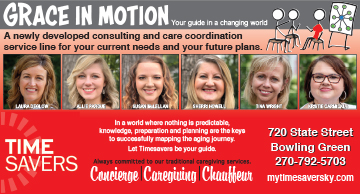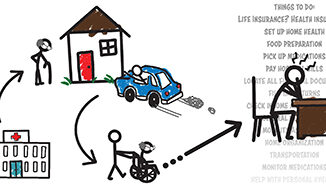
This winter, more than ever, it is important we connect the older adults in our lives to each other, to the outside world, and to the people they love. Isolation during the cold weather months is always a concern, but the pandemic has made it even more vital to address. Where to begin?
Technology is an amazing thing, and its many facets have allowed us to stay connected via Zoom, FaceTime, Skype, social media, email, voice messages, digital photo frames, video and more. All of these things are important to continue to utilize. But perhaps there are even more ways to decrease the feeling of isolation and increase the feeling of engagement and stimulation.
Here are a few suggestions:
•The Connect2Affect program from AARP offers self-assessments and information on different ways to reduce isolation and loneliness. (connect2affect.org)
•Art becomes the focus with the Unlonely Project and its Stuck at Home initiative that lets you view others’ masterpieces or share your own. (artandhealing.org)
•You can also hone your art skills by accessing free coloring books from some world-class libraries and museums, like the Met, New York Public Library, Smithsonian and more. (nypl.org; metmuseum.org/art/art-at-home/coloring-books)
•National treasures are available to us, as well. It’s possible to become a digital volunteer with the Smithsonian Institute and help expand access to their collections and participate in online research programs. (si.edu/volunteer/DigitalVolunteers)
•The Google Arts & Culture site offers introductions to dozens of international museums all over the world. (artsandculture.google.com)
•Nearly 1 million virtual volunteers are needed to fill all the opportunities listed on Volunteer Match, an online directory of virtual volunteer opportunities. (volunteermatch.org/virtual-volunteering)
•Did you know you can take virtual tours of the National Parks? And it doesn’t require hiking! (NationalParks.org)
•If your loved one misses traveling, they can still travel the world by watching full episodes of the many trips taken by Rick Steves. (ricksteves.com)
•Learning stimulates neural pathways, and you can learn a new subject by taking one of 450 Ivy League courses online being offered for free right now.
•Assistance from a Distance is Papa, Inc. program that connects college students and older adults for assorted services ranging from help with technology to virtual companionship. (joinpapa.com/virtual-companionship-visits; 1-888-508-6571)
•A group of Cornell students built the platform Quarantine Buddy to match users with similar interests for virtual conversations. So far, the group has attracted 8,000 people in 64 countries, ranging in age from 18 to 80. (qtinebuddy.com)
•U.S. Administration on Aging Eldercare Locator is a federal public service that connects you to services and information designed to help you build a community of support. (eldercare.acl.gov/Public/Index.aspx; 1-800-677-1116)
Lack of interaction and stimulation can create inertia and depression. Inertia and depression can make us stay even more isolated. It is a vicious cycle that has been exacerbated by the necessary precautions associated with the pandemic. But the list included here demonstrates that a little creativity and effort can make whole new worlds available for the people we love.
This winter, be intentional about opening virtual doors, even if physical doors remain closed for a little while longer. Every connection can make a difference.
-submitted by Timesavers




